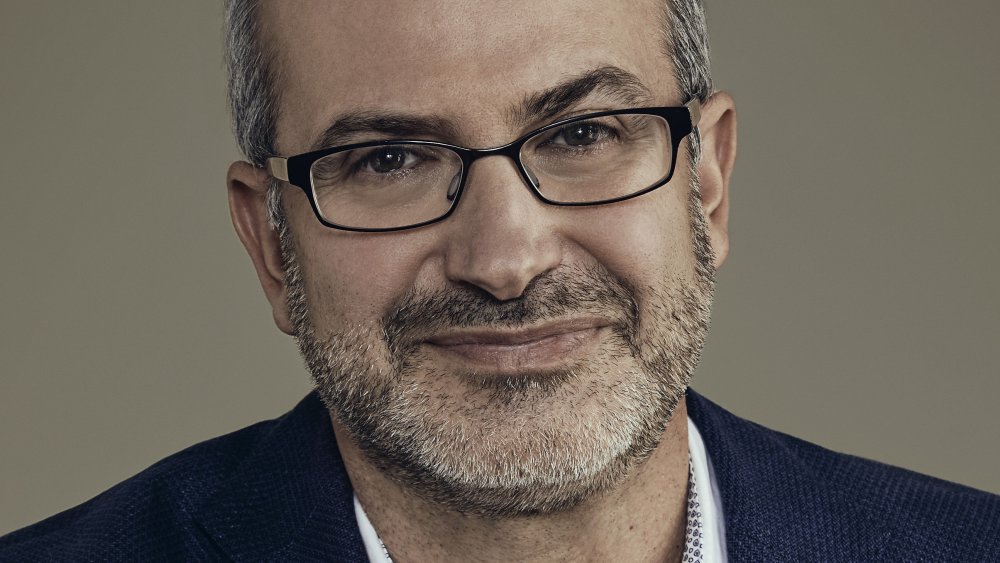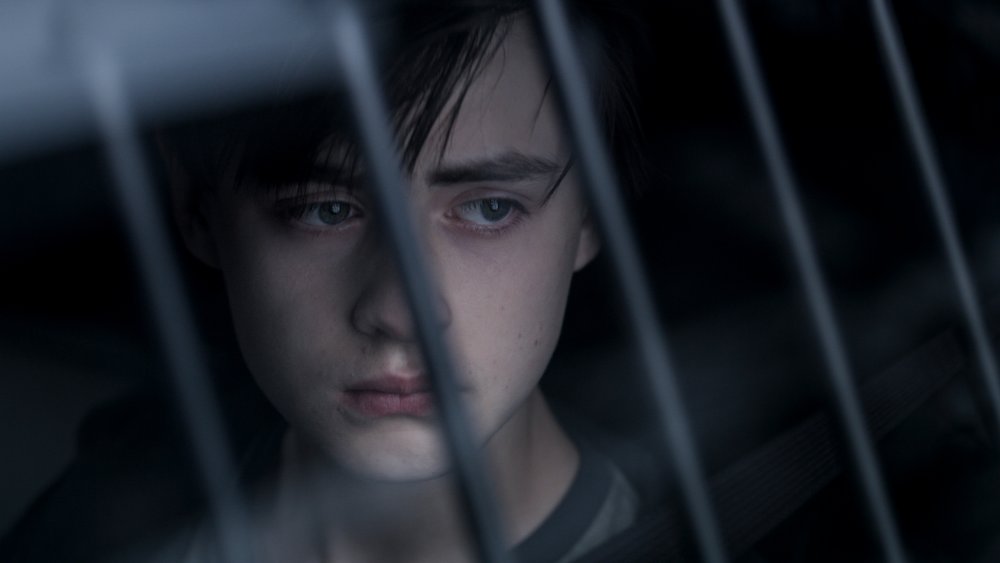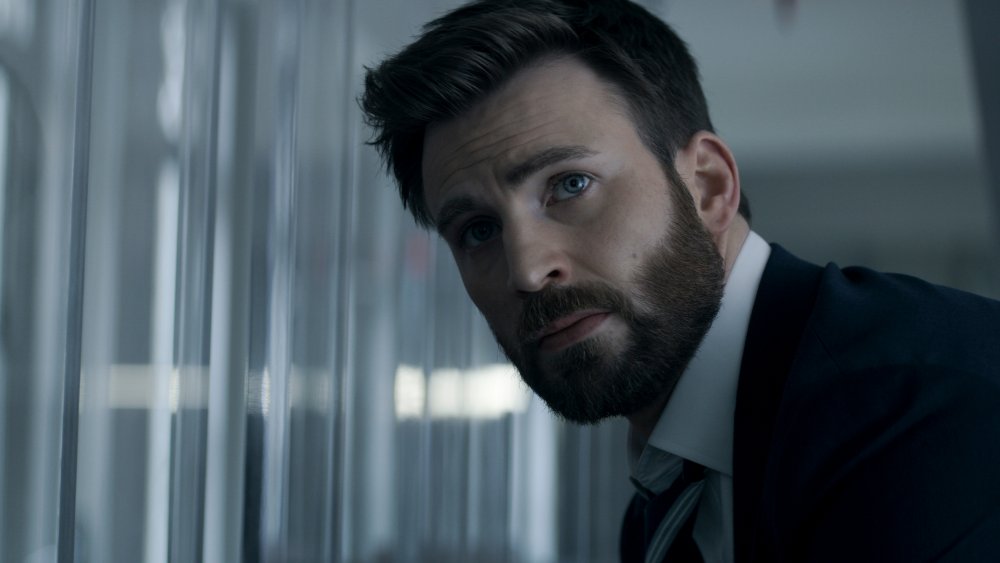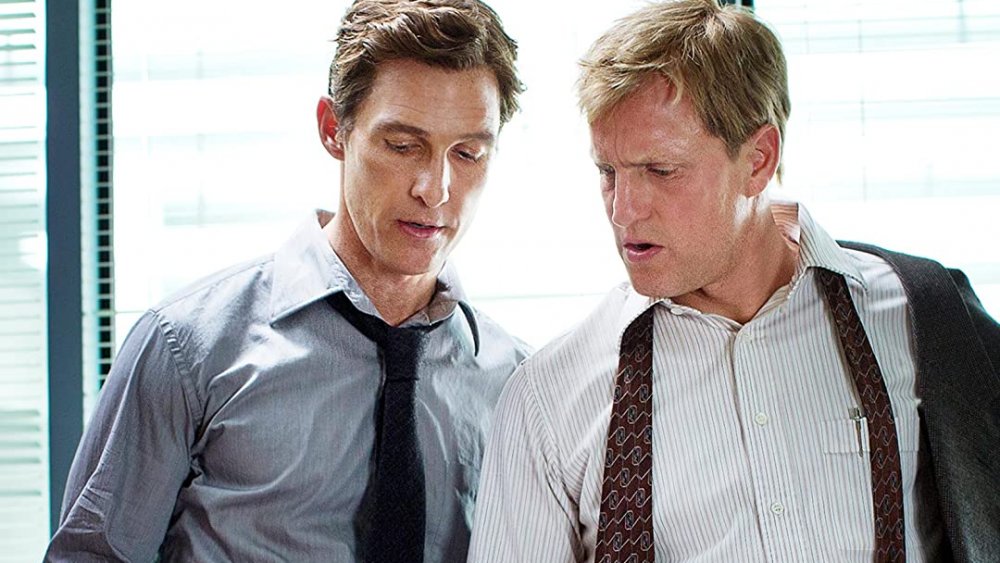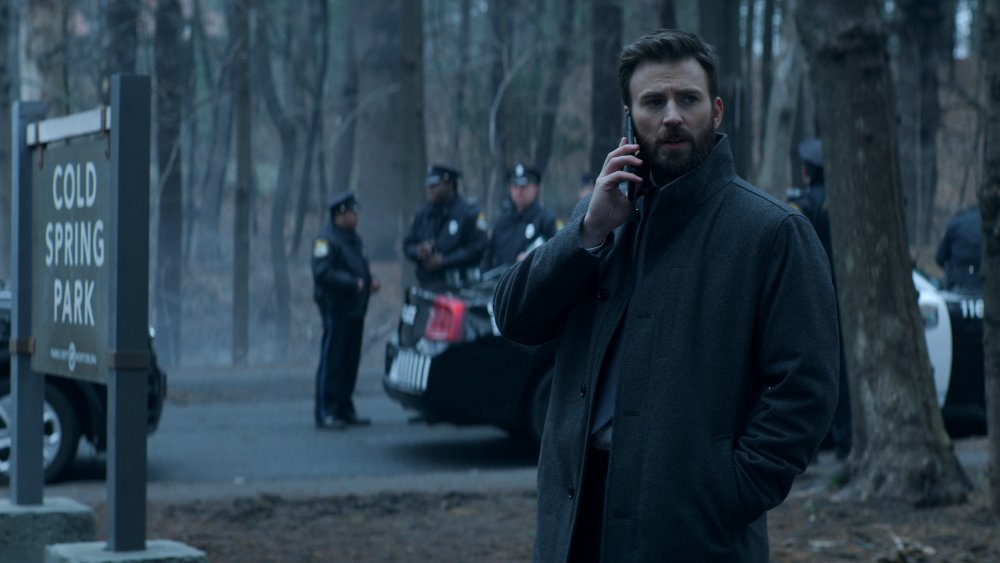Writer Mark Bomback Talks Working With Chris Evans On New Show Defending Jacob - Exclusive Interview
As Captain America, Chris Evans was the all-American hero. Standing six feet tall with perfectly coiffed hair, Evans donned the iconic suit and shield in 11 films over the course of a decade, with his last being 2019's Avengers: Endgame. Without missing a beat, he took on a new, unexpected role in 2020, playing a conflicted father and assistant district attorney whose teenage son is accused of murder in the Apple TV+ miniseries Defending Jacob. In addition to Evans portraying Andy, the series — based on the 2012 William Landay novel of the same name — stars Michelle Dockery (Downton Abbey) as his wife Laurie and Jaeden Martell (It) as Jacob.
Written by Mark Bomback, who's also the creator and executive producer of the show, the eight-episode crime drama is a dark turn for the actor, who tends to gravitate toward more lighthearted fare. It's also a new direction for Bomback, who's best known for blockbuster summer popcorn flicks like Live Free or Die Hard, The Wolverine, and Dawn of the Planet of the Apes.
In an exclusive interview with Looper, Bomback chatted about what it was really like working with Evans on Defending Jacob, the inspiration behind the miniseries, and the challenges of adapting a book into a TV series. Here's what he had to say.
The story behind the series
What about the Defending Jacob story appealed to you and why did you want to turn it into a miniseries?
I'm not a fan of the term "elevated genre," but it's the easiest way to describe it. I love stories that are participating in a genre, in this case a thriller, a mystery, but have the potential to really be about the human experience. And Defending Jacob has something to say about what it means to be a parent, a child, a spouse. In fact, delving into that experience enhances the thrills of the mystery because you care that much more, and vice versa. So that was what appealed to me as a writer.
Plus, I have four children and being a dad is my central preoccupation, and what kind of a job I'm doing keeps me up at night, so I really connected to this dilemma. It's a very particular kind of nightmare. I've been very fortunate that I have pretty good kids, but we are ultimately, in a sense, at the mercy of our unconditional love for them. Between writing and shooting I've been with this show for almost three years now, so you have to really care about the subject matter. And I did.
How faithful is the series to the book?
I think that if you read the book you would say, "This feels like the book and has a lot of the moments I remember." But as a TV show, it has a different mandate. It's a different style of storytelling. The book is written in the first person, so it's really Andy's story from Andy's point of view. There aren't any scenes in the book that Andy isn't present for. So part of my job was to retell the story in a way that felt like more of a kaleidoscope of characters. I was able to invent a lot of depth for Laurie, and even re-approached Jacob's character. In the book Jacob was written as a darker character. And I think part of the author's reasoning is that you're coming at it from Andy's point of view, so he probably perceives him in a darker way. But I thought it would be more compelling if Jacob was more of a typical kid who has his dark moments and his upbeat moments, and is sometimes very reachable and other times very remote. It's a different experience. My one obligation when I'm adapting someone's work is to really be true to the spirit of what it is they wrote. And in this case, I feel like I've been quite true to the spirit of the book.
What was the hardest part of adapting the book into a teleplay?
This is the first time I've ever written eight hours of anything, so one of the biggest challenges was figuring out when an episode was over. The pacing was something I thought a lot about. And then there are some storylines that aren't in the book that I invented, which begged the question, how do I thread those in so that they feel organic and more like an enhancement than padding? I took a lot of pride in the author of the book watching the show and saying, "I wish I had thought of that subplot; that would've been cool in the book." So I felt good about it because I had his blessing.
Working with Chris Evans on Defending Jacob
Did you have certain actors in mind when writing, or had those already been decided?
I've been a screenwriter for a long time on the film side, so I've learned the hard way not to fall in love with the idea of any one actor when you're writing. So, no one in my head specifically. But while I was writing, Chris was cast, probably after writing episode two. And Michelle was cast by episode six, and Jaeden too. So by the time I was done writing the show, I knew whom I was writing for. But for the beginning of the writing process I didn't.
This is kind of a different role for Chris Evans, more serious and subdued. Why was he right for the part?
Chris, as a human being, is a very interesting guy. He exudes a certain amount of warmth, but there's also a bit of distance with him. And that was a very useful way of seeing the character. He also exudes a very sharp intelligence, which was something that we really wanted to lock in on. Another interesting thing is, he doesn't have kids, but he's very close to his family, and I think he was really excited about the prospect of playing a dad. And that got me excited to see what we could write for him.
I knew him as an actor, but I will confess that he exceeded my expectations on the first day of shooting. He embodied the character in a way that I was hoping for but didn't know was actually possible. As we went through shooting, he was an invaluable collaborator for me. I run a lot of things by him because I felt he understood the character in ways that even I didn't sometimes. He was really perceptive. If I had written the character to get a little angry in a certain scene, he would say, "I'm not too sure that's what he would do here; let me try it this way." And he was inevitably right. He just had really great instincts.
Any memorable moments with him from the set?
We shot for 115 days, so there are a lot of great moments. I don't want to embarrass him, but he was incredibly generous to the crew. He has a house not far from where we shot [in Massachusetts] and he would have everyone over who worked on the show, from production assistants who were just out of college and everyone in between. In many ways he functioned as the ambassador for suburban Boston for us. He was the local. And he just couldn't have been more of a gracious host.
The inspiration behind the series
Did any of the procedural shows inspire you while writing, like CSI or Law & Order?
I know I'm in the minority, but I think I've seen maybe one or two Law & Order episodes in my life, and I've never watched CSI. But I loved Broadchurch. That was a really big inspiration for me. And I love The Fall, and Rectify. But probably more than anything, this is like saying your favorite film is The Godfather, but I loved that first season of True Detective. It was such a game-changer for me. It was almost like learning about a new medium; you suddenly realized what TV was capable of.
In general, what TV or movies inspire you?
The movie that was the big touchstone for this show was Mystic River. When I was explaining to my agents what I wanted to do, I used Mystic River as a reference, which is a very intense twisty-turny thriller where you get really invested in what's going on with the characters. And when I sent the script to director Morton Tyldum, unprompted he said, "This felt a little like Mystic River to me." And right there we knew we were trying to make the same show. So that film has been huge for me.
How did working on a miniseries differ from, say, working on The Wolverine or Planet of the Apes?
Purely as a writer, it's in many ways much more freeing. With a screenplay, you're aiming for a 120-page script, about a page a minute. So I constantly feel this race against the clock. I'll look at the page number — I'm on page 40 and I'm still in act one, which is a problem so I need to go back and see where it's overwritten. When you have a bigger canvas to work on, there's less of that time crunch. Also, when you're writing for movies, the first thing that gets sacrificed is character, because you need to keep the plot moving and keep the narrative front and center. So, with Defending Jacob, I was really inspired by how much time I could devote to character and theme and have it not feel like it was gumming up the plot. There are a lot of moments in there where I would say, "in a movie this would be the first thing to get cut," and it was such a pleasure [that that didn't happen].
The importance of where Defending Jacob was filmed
Why was it important to actually film in Massachusetts rather than, say, Vancouver or somewhere else that looked like it?
Well, the book is set there, which doesn't mean that you couldn't reset it elsewhere. It's sort of a cliché to say, but the town [Newton, Massachusetts] is a character. I live in Westchester County, New York, and it feels very similar to suburban Boston. But I wasn't interested [in filming there], and I've shot a lot of movies in Vancouver and it's awesome. It gives you a sense of place — if your sense of place wants to be Seattle.
What I wasn't looking to do, and what I was actually worried about, was doing a show that was poking fun at suburbia and presenting it as a caricature of itself. I live in suburbia, and there are things about it that are certainly worthy of derision, but there are also things about it that give you a real sense of community and security. Sometimes that security can be dangerous, but sometimes it's welcome. And there are some coded things going on there that are, to me, interesting. There's sincerity in the decision to move there. Oftentimes it's people who started out in the city and then moved there because they had kids. They want to have better lives, but it can be very insular. [With Defending Jacob], I was interested in the idea that when those kinds of places turn on one of their own, it's even more isolating than if you lived in a city.
